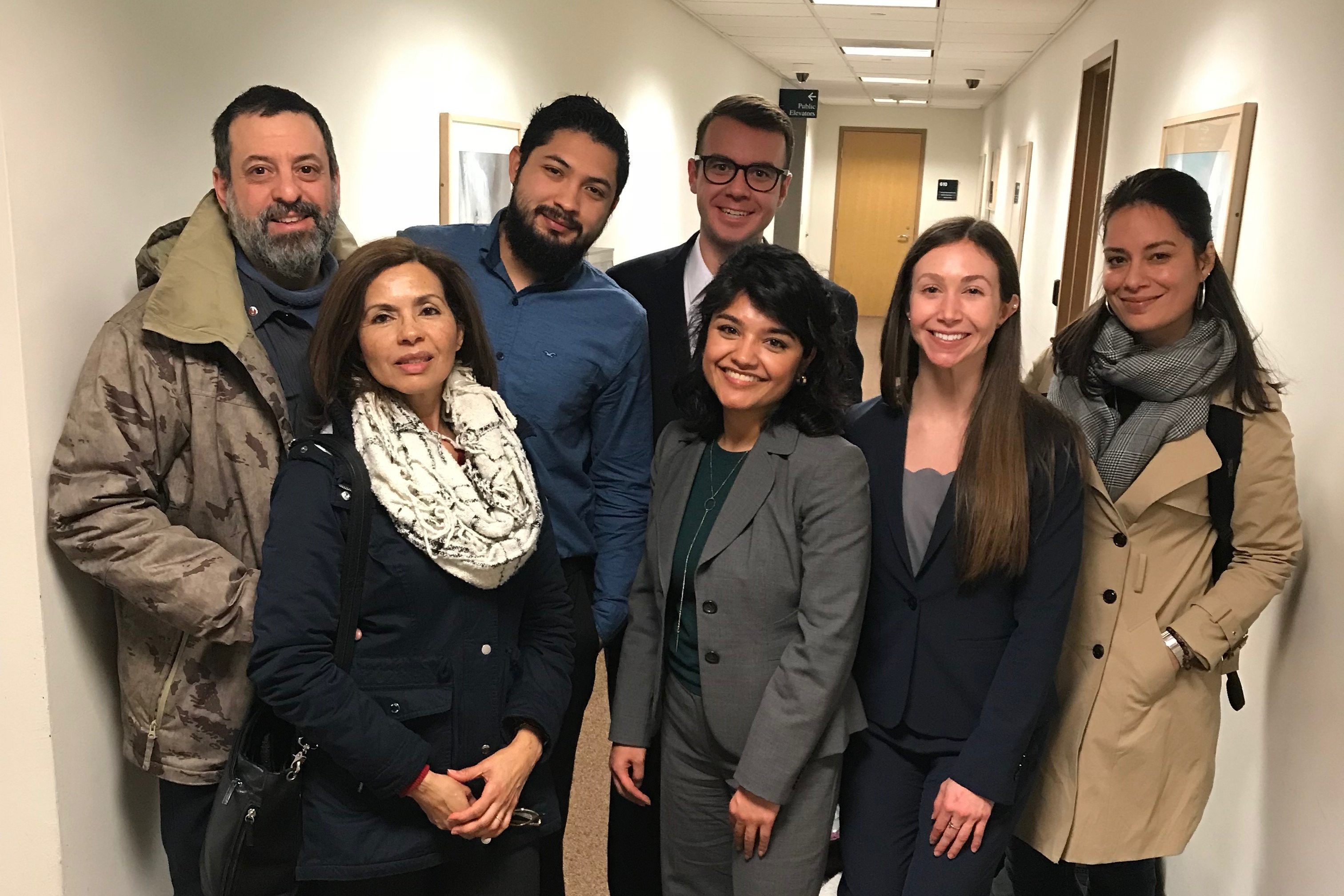Franklin René Ruano Galdamez said he never thought of leaving El Salvador until members of Mara Salvatrucha, the gang known as MS-13, kidnapped him, beat him, and threatened to kill him.
His anti-gang work with the Arena political party had made him a target. “My mom told me if I wanted to live, I would have to come to the U.S.,” he said. Party leaders told him the same.
Galdamez arrived in the United States in December 2017, with a plan to apply for asylum. After crossing the border from Mexico, he said, he was immediately apprehended by Border Patrol agents and served with a deportation order.
As Galdamez faced the reality of mounting a case for asylum, he moved to Connecticut, where he would be closer to family.
Here, he turned to the Asylum and Human Rights Clinic at UConn Law, which has handled more than 125 cases in a 15-year period. Typically, 20 law students participate in the intensive Asylum and Human Rights Clinic program each year. Each student who participates handles every aspect involved in representation.
Second-year law students Alexandria Madjeric and Adam Kuegler took on Galdamez’ case under the supervision of Jon Bauer, clinical professor of law and Richard D. Tulisano ’69 Scholar in Human Rights, and Valeria Gomez, the clinic’s teaching fellow.
The students met with Galdamez weekly, interviewed witnesses and experts and wrote briefs on his behalf. Their work culminated in a hearing in Hartford Immigration Court, where the students represented Galdamez.
It was the end of a process that could either spell an official end or a new beginning for Galdamez.
The students said they discussed the case every day they were working on it, often texting each other with ideas. Both said the biggest challenge for them was to remain professional and avoid getting emotionally involved.
“We so badly wanted to be able to promise a result and that’s just not something you ever can do,” Kuegler said. “We felt we had a strong case, but obviously a judge can feel differently, so you just never know.”
Galdamez said he felt the students understood the gravity of his situation. Bauer and Gomez were proud of their work.
“At every step of the case, Adam and Alex represented Franklin with passion and compassion,” Gomez said. “They worked enthusiastically, tirelessly, and meticulously, and were so thorough in their work that even opposing counsel commended them on their case preparation and their performance during Franklin’s asylum hearing.”
In January 2019, the immigration court granted Galdamez asylum status, which allows him to live, work and study in the United States legally.
“There is a piece of me that stayed in El Salvador with my friends and family,” he said. “Here, I feel safe, and so I am happy even though there are many things I miss.”
Now 28 years old and living in Hartford, Galdamez recently started working a second job. He said he is grateful for the opportunities the United States offers and is ready to start the next chapter in his life.
In April, he returned to UConn Law to speak on a panel of refugees and stateless people. Seeing Galdamez on the panel, felt like closing the circle of her work with him, Madjeric.
“Seeing him there was really emotional in a good way,” she said. “It really does feel like we were able to help him get a new life.”



